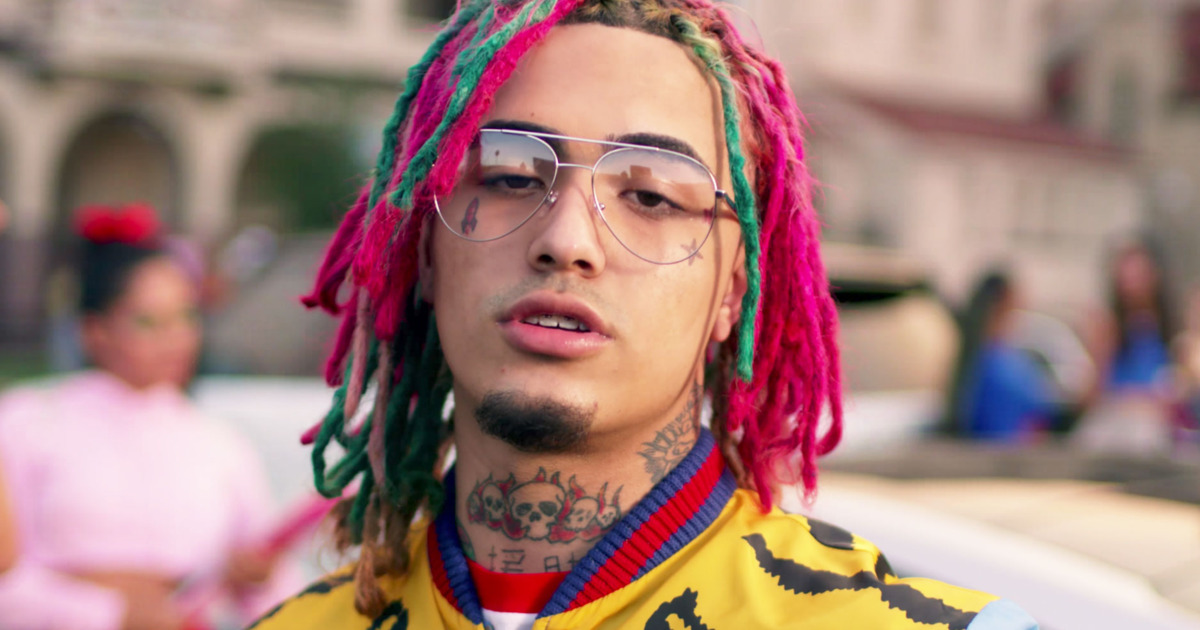Lil Pump is For the Kids: A Harverd Dropout Review
I mean this literally—the album is for children. In a rap game full of 30-year-olds appealing to undergrads and high schoolers, Lil Pump is rare in that he was born in the same decade as his primary audience. Three years ago, Gazzy Garcia, otherwise known as...
I mean this literally—the album is for children. In a rap game full of 30-year-olds appealing to undergrads and high schoolers, Lil Pump is rare in that he was born in the same decade as his primary audience. Three years ago, Gazzy Garcia, otherwise known as Lil Pump, dropped out of high school to pursue an immediately successful career in party-rap. By ending his brief stint in the public school system, Lil Pump replaced a montage of linoleum floors, whiteboards, and plastic desks with repetitive hooks over simple, loud beats, blasting the ears with immediate stimulation. Sure, the words are pointless, but so was every social studies lecture I’ve ever sat through—at least these words are fun. Even without a diploma, Lil Pump quickly spread to every smartphone via his Billboard-charting, self-titled debut Lil Pump. Harverd Dropout provides an eardrum-busting return to form.
The lyrics are as basic as ever: money, sex, and drugs. A lot of them. An admittedly unhealthy amount of them. I needed an actual computer script to count the endless stream of Lil Pump’s drug references: 100 codeine mentions, with second place going to various pills, 37 mentions total. An honorable mention goes to ecstasy, with 34 references and 19 in one song. While listening to Harverd Dropout, one might wonder how Garcia could have become so pharmacologically experienced at such a young age. Fret not, Lil Pump has answers. According to the album, his strategy involved sipping lean in class starting at age 13, as well as classic techniques like the bathroom hotbox.
Lil Pump’s lifestyle is self-described as so ideal that one almost has to mirror it, see “Be Like Me (feat. Lil Wayne),” but this description comes with an unusual honesty. Songs like “Drug Addicts,” album-wide references to memory loss, and the line “Ever since I started sippin’ lean, I lost my six pack” (from “Off White”) do technically highlight some of the health risks involved in Lil Pump’s totally awesome, definitely-not-sad lifestyle and serve as a downplayed PSA to Pump’s young fanbase. He knows they’re listening, as high school references are constant in Lil Pump’s sophomore album. Childhood buzzwords like “vitamin C,” “iCarly,” and “Fortnite” are scattered among bar after repeated bar about Lil Pump’s non-sober episodes. Lil Pump also takes every opportunity to flex on America’s youth—his lunch lady serves soda with drugs. His girl rides in the front seat. According to his lyrics, Lil Pump sleeps with everyone’s mother, sister, and/or cousin in a weird, unmistakably childish sexual competition with the listener.
 The album’s “dumb kid” image extends to its purposely misspelled title, Harverd Dropout. The title comes from a joke-turned-rumor that Lil Pump dropped out of Harv*rd University to save the rap game. Lil Pump (or his label) knows a good meme when they see one and took the opportunity to stretch it into an LP. The joke is immediately appealing, as Harverd Dropout forces Lil Pump into a group with Bill Gates, Mark Zuckerberg, etc. Lil Pump, in all of his lean-sipping splendor, adds pink dreads to the wardrobe of uber-wealthy individuals who have vaulted over the US school system. These role models represent the fantasy every student has at some point, one that stems from the sneaking suspicion that the day-to-day shit we’re supposed to do is actually as dumb as it feels. Maybe I don’t need these history flashcards, maybe ⅗ of the required courses for my major really are a waste of time. Maybe, just maybe, all I need is my individuality and the confidence that comes from a drug-induced shutdown of my nervous system.
Harverd Dropout embodies a dream of being so cutting edge, so self-confident, that you don’t need an incubation period or Official Certificate to succeed. With such freedom in one hand and a double cup in the other, Lil Pump taps into the hope of millions of bored students held hostage by the same bureaucratic education he recently escaped. Over a booming low end and dissonant background melodies, he then gathers their collective imaginations by showing them an alternative, a world entirely outside of lockers, gym class, and problem sets. Using blunt lyricism and a well-kept aura of deep stupid, he channels this starry-eyed energy directly into getting paid. And codeine fat.
The album’s “dumb kid” image extends to its purposely misspelled title, Harverd Dropout. The title comes from a joke-turned-rumor that Lil Pump dropped out of Harv*rd University to save the rap game. Lil Pump (or his label) knows a good meme when they see one and took the opportunity to stretch it into an LP. The joke is immediately appealing, as Harverd Dropout forces Lil Pump into a group with Bill Gates, Mark Zuckerberg, etc. Lil Pump, in all of his lean-sipping splendor, adds pink dreads to the wardrobe of uber-wealthy individuals who have vaulted over the US school system. These role models represent the fantasy every student has at some point, one that stems from the sneaking suspicion that the day-to-day shit we’re supposed to do is actually as dumb as it feels. Maybe I don’t need these history flashcards, maybe ⅗ of the required courses for my major really are a waste of time. Maybe, just maybe, all I need is my individuality and the confidence that comes from a drug-induced shutdown of my nervous system.
Harverd Dropout embodies a dream of being so cutting edge, so self-confident, that you don’t need an incubation period or Official Certificate to succeed. With such freedom in one hand and a double cup in the other, Lil Pump taps into the hope of millions of bored students held hostage by the same bureaucratic education he recently escaped. Over a booming low end and dissonant background melodies, he then gathers their collective imaginations by showing them an alternative, a world entirely outside of lockers, gym class, and problem sets. Using blunt lyricism and a well-kept aura of deep stupid, he channels this starry-eyed energy directly into getting paid. And codeine fat.
 The album’s “dumb kid” image extends to its purposely misspelled title, Harverd Dropout. The title comes from a joke-turned-rumor that Lil Pump dropped out of Harv*rd University to save the rap game. Lil Pump (or his label) knows a good meme when they see one and took the opportunity to stretch it into an LP. The joke is immediately appealing, as Harverd Dropout forces Lil Pump into a group with Bill Gates, Mark Zuckerberg, etc. Lil Pump, in all of his lean-sipping splendor, adds pink dreads to the wardrobe of uber-wealthy individuals who have vaulted over the US school system. These role models represent the fantasy every student has at some point, one that stems from the sneaking suspicion that the day-to-day shit we’re supposed to do is actually as dumb as it feels. Maybe I don’t need these history flashcards, maybe ⅗ of the required courses for my major really are a waste of time. Maybe, just maybe, all I need is my individuality and the confidence that comes from a drug-induced shutdown of my nervous system.
Harverd Dropout embodies a dream of being so cutting edge, so self-confident, that you don’t need an incubation period or Official Certificate to succeed. With such freedom in one hand and a double cup in the other, Lil Pump taps into the hope of millions of bored students held hostage by the same bureaucratic education he recently escaped. Over a booming low end and dissonant background melodies, he then gathers their collective imaginations by showing them an alternative, a world entirely outside of lockers, gym class, and problem sets. Using blunt lyricism and a well-kept aura of deep stupid, he channels this starry-eyed energy directly into getting paid. And codeine fat.
The album’s “dumb kid” image extends to its purposely misspelled title, Harverd Dropout. The title comes from a joke-turned-rumor that Lil Pump dropped out of Harv*rd University to save the rap game. Lil Pump (or his label) knows a good meme when they see one and took the opportunity to stretch it into an LP. The joke is immediately appealing, as Harverd Dropout forces Lil Pump into a group with Bill Gates, Mark Zuckerberg, etc. Lil Pump, in all of his lean-sipping splendor, adds pink dreads to the wardrobe of uber-wealthy individuals who have vaulted over the US school system. These role models represent the fantasy every student has at some point, one that stems from the sneaking suspicion that the day-to-day shit we’re supposed to do is actually as dumb as it feels. Maybe I don’t need these history flashcards, maybe ⅗ of the required courses for my major really are a waste of time. Maybe, just maybe, all I need is my individuality and the confidence that comes from a drug-induced shutdown of my nervous system.
Harverd Dropout embodies a dream of being so cutting edge, so self-confident, that you don’t need an incubation period or Official Certificate to succeed. With such freedom in one hand and a double cup in the other, Lil Pump taps into the hope of millions of bored students held hostage by the same bureaucratic education he recently escaped. Over a booming low end and dissonant background melodies, he then gathers their collective imaginations by showing them an alternative, a world entirely outside of lockers, gym class, and problem sets. Using blunt lyricism and a well-kept aura of deep stupid, he channels this starry-eyed energy directly into getting paid. And codeine fat. 
